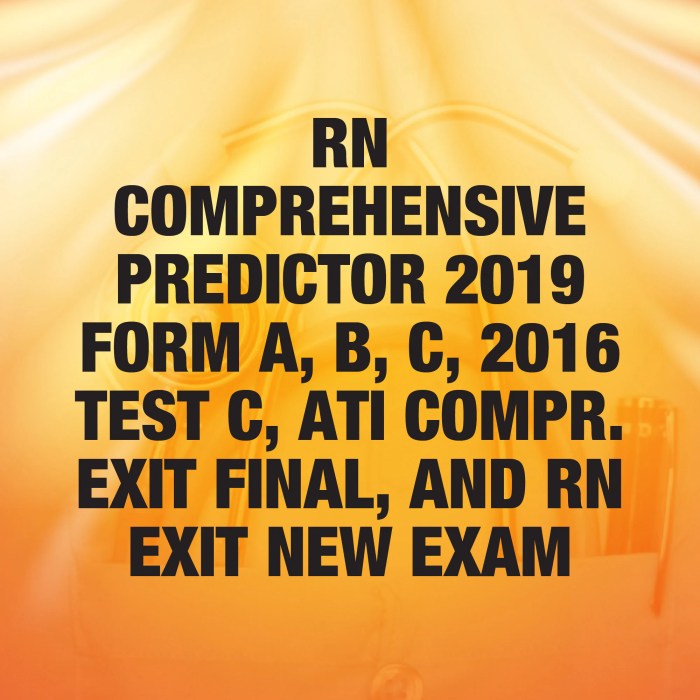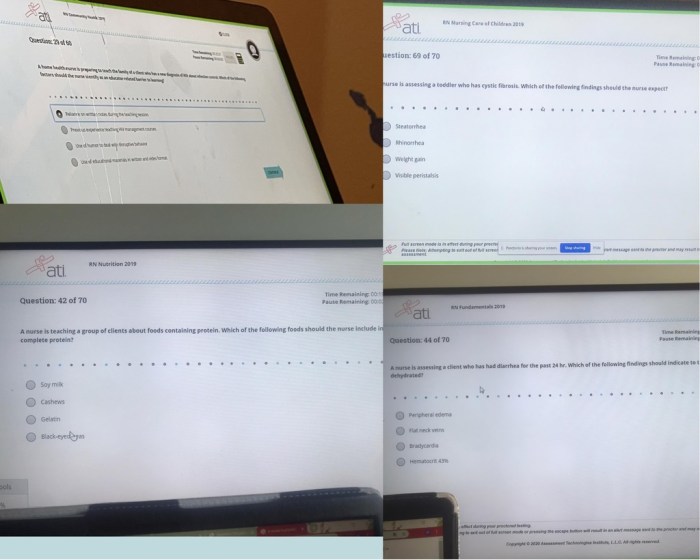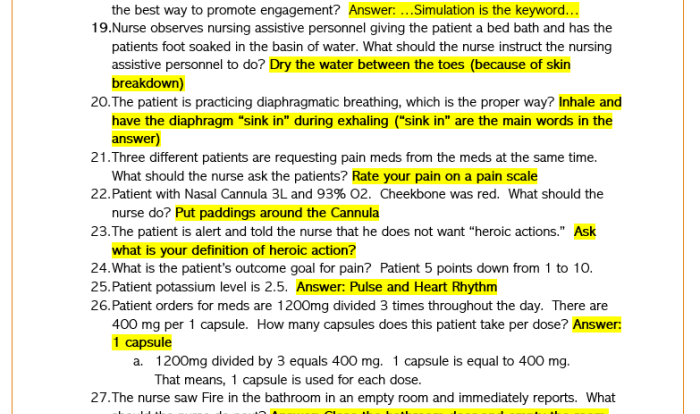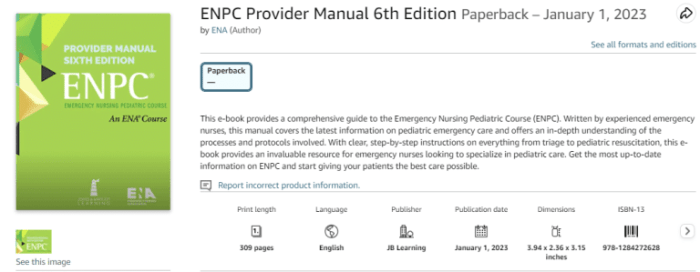The RN ATI Comprehensive Predictor 2019 is an indispensable tool for nursing students and professionals seeking to assess their knowledge, skills, and readiness for the NCLEX-RN examination. This comprehensive assessment provides valuable insights into areas of strength and weakness, enabling individuals to tailor their study plans and maximize their chances of success on the NCLEX-RN.
This guide delves into the intricacies of the RN ATI Comprehensive Predictor 2019, exploring its structure, content, preparation strategies, scoring, and interpretation. By understanding the nuances of this assessment, nurses can harness its full potential to enhance their nursing education and career trajectory.
RN ATI Comprehensive Predictor 2019 Overview

The RN ATI Comprehensive Predictor 2019 is a standardized exam designed to assess the knowledge and skills of nursing students and practicing nurses.
Developed by Assessment Technologies Institute (ATI), the predictor is widely used by nursing schools and healthcare organizations to evaluate candidates’ readiness for the NCLEX-RN exam and entry into the nursing profession.
Background and History
The RN ATI Comprehensive Predictor 2019 is the latest version of the assessment, which has been in development for over 20 years.
The predictor has undergone rigorous validation and reliability testing to ensure its accuracy and fairness in predicting NCLEX-RN performance.
Exam Structure and Content

The RN ATI Comprehensive Predictor 2019 is a comprehensive examination designed to assess the knowledge and skills of nursing students and practicing nurses. The exam consists of 200 multiple-choice questions and takes approximately four hours to complete.The exam is divided into six sections, each of which covers a different area of nursing practice:
Medical-Surgical Nursing, Rn ati comprehensive predictor 2019
This section covers the care of patients with medical and surgical conditions, including assessment, planning, implementation, and evaluation of nursing care.
Pediatric Nursing
This section covers the care of infants, children, and adolescents, including assessment, planning, implementation, and evaluation of nursing care.
Obstetrics and Gynecology
This section covers the care of women during pregnancy, labor, and delivery, as well as the care of newborns.
Psychiatric-Mental Health Nursing
This section covers the care of patients with mental health disorders, including assessment, planning, implementation, and evaluation of nursing care.
Pharmacology
This section covers the principles of pharmacology, including drug administration, drug interactions, and adverse drug reactions.
Leadership and Management
This section covers the principles of nursing leadership and management, including delegation, communication, and conflict resolution.
Preparation and Study Strategies
Preparing effectively for the RN ATI Comprehensive Predictor 2019 requires a comprehensive approach that encompasses strategic planning, efficient study techniques, and the utilization of diverse resources.
To optimize exam performance, it is imperative to establish a structured study plan that allocates sufficient time for each subject area and incorporates active learning strategies. Regular practice with practice questions and simulations can significantly enhance understanding and retention of key concepts.
Study Resources
Leveraging a variety of study resources can greatly contribute to exam success. The official RN ATI Comprehensive Predictor 2019 study guide provides a comprehensive overview of the exam content and format, serving as a valuable foundation for preparation.
Additionally, reputable online platforms offer practice questions, interactive simulations, and study guides tailored specifically to the RN ATI Comprehensive Predictor 2019. These resources can provide a realistic assessment of exam readiness and identify areas for further improvement.
Active Learning Strategies
Engaging in active learning strategies, such as spaced repetition, retrieval practice, and self-explanation, has been scientifically proven to enhance long-term memory and improve exam performance.
Spaced repetition involves reviewing material at increasing intervals, which strengthens memory recall. Retrieval practice entails actively recalling information without referring to notes, promoting deeper understanding. Self-explanation involves explaining concepts to oneself or others, which facilitates comprehension and retention.
Time Management
Effective time management is crucial for exam success. Allocating sufficient time for each subject area and adhering to a realistic study schedule can help reduce stress and improve focus during the exam.
Prioritizing challenging concepts and addressing areas of weakness early on allows for more time to master the material. Utilizing time management techniques, such as the Pomodoro Technique or the Eisenhower Matrix, can optimize study efficiency and productivity.
Stress Management
Managing stress levels is essential for maintaining focus and cognitive function during the exam. Engaging in regular exercise, practicing relaxation techniques, and maintaining a healthy sleep schedule can help reduce anxiety and improve overall well-being.
Additionally, seeking support from peers, family, or a therapist can provide emotional encouragement and reduce the burden of exam preparation.
Scoring and Interpretation

The RN ATI Comprehensive Predictor 2019 is scored based on the number of correct answers you provide. The total possible score is 1300. Your raw score is then converted into a scaled score ranging from 1 to 1000.
The scaled score is used to predict your probability of passing the NCLEX-RN. A scaled score of 500 or higher indicates a high probability of passing, while a scaled score below 500 indicates a lower probability of passing.
Score Ranges and Implications
The RN ATI Comprehensive Predictor 2019 score ranges and their implications are as follows:
- Scaled score of 500 or higher:High probability of passing the NCLEX-RN.
- Scaled score of 450-499:Moderate probability of passing the NCLEX-RN. Additional study and preparation is recommended.
- Scaled score of 400-449:Low probability of passing the NCLEX-RN. Significant additional study and preparation is required.
- Scaled score below 400:Very low probability of passing the NCLEX-RN. Extensive additional study and preparation is required.
Benefits and Uses
The RN ATI Comprehensive Predictor 2019 offers numerous benefits for nursing students and professionals alike. It provides valuable insights into an individual’s nursing knowledge and skills, aiding in both education and career planning.
For nursing students, the assessment serves as a diagnostic tool, identifying areas where they excel and areas requiring improvement. This information can be utilized to tailor study plans and focus on strengthening weaker areas. Additionally, the predictor provides a realistic preview of the NCLEX-RN exam, helping students develop test-taking strategies and build confidence.
Nursing Education
- Provides a comprehensive evaluation of nursing knowledge and skills.
- Assists in identifying strengths and weaknesses, enabling targeted study and improvement.
- Offers a realistic simulation of the NCLEX-RN exam, enhancing test-taking confidence.
Career Planning
- Provides a benchmark for comparing oneself against other nursing students and professionals.
- Helps identify areas for professional development and career advancement.
- Can be used to support job applications and demonstrate nursing competence.
Limitations and Considerations
The RN ATI Comprehensive Predictor 2019 is a valuable tool for nursing students, but it is essential to acknowledge its limitations and consider factors that may influence its accuracy and reliability.
Accuracy and Reliability Factors
The accuracy and reliability of the RN ATI Comprehensive Predictor 2019 can be influenced by several factors, including:
Test-taking skills
Students with strong test-taking skills may perform better on the assessment, potentially overestimating their actual knowledge and clinical skills.
Test anxiety
Test anxiety can negatively impact performance, leading to lower scores that may not accurately reflect a student’s abilities.
Study habits
Students who engage in effective study habits and prepare thoroughly for the assessment are more likely to achieve higher scores.
Time constraints
The timed nature of the assessment may limit students’ ability to fully demonstrate their knowledge and skills, potentially affecting their scores.
Comparison to Other Assessments
The RN ATI Comprehensive Predictor 2019 is one of several assessments available to help nursing students predict their success on the NCLEX-RN exam. Other similar assessments include the Kaplan NCLEX-RN Predictor and the HESI A2 Exam.
Each assessment has its own strengths and weaknesses. The RN ATI Comprehensive Predictor 2019 is a comprehensive assessment that covers all of the content areas tested on the NCLEX-RN exam. It also provides detailed feedback on student performance, which can be helpful for identifying areas that need improvement.
Strengths and Weaknesses of Other Assessments
- Kaplan NCLEX-RN Predictor:This assessment is known for its accuracy and its ability to identify students who are at risk of failing the NCLEX-RN exam. However, it is also more expensive than other assessments and does not provide as much feedback on student performance.
- HESI A2 Exam:This assessment is a good option for students who are looking for a more affordable assessment. However, it is not as comprehensive as the RN ATI Comprehensive Predictor 2019 and does not provide as much feedback on student performance.
Future Trends and Developments: Rn Ati Comprehensive Predictor 2019

The RN ATI Comprehensive Predictor is a valuable assessment tool that has undergone continuous improvement and innovation. As the healthcare industry and nursing profession evolve, the assessment is likely to adapt and incorporate new trends and developments.
One potential future trend is the increased use of technology in the assessment process. The predictor may integrate more advanced technologies, such as artificial intelligence (AI) and adaptive learning, to enhance the assessment experience and provide personalized feedback to candidates.
Integration of Virtual Reality (VR)
VR technology has the potential to revolutionize healthcare education and training. The RN ATI Comprehensive Predictor may incorporate VR simulations to provide candidates with immersive and interactive experiences that mimic real-world nursing scenarios. This can enhance their problem-solving skills and decision-making abilities.
Personalized Learning Plans
The predictor may also adopt personalized learning plans that tailor the assessment experience to each candidate’s individual needs and strengths. By leveraging data analytics and AI, the assessment can identify areas where candidates require additional support and provide targeted resources and guidance.
Expanded Content Coverage
As the scope of nursing practice continues to expand, the RN ATI Comprehensive Predictor may broaden its content coverage to include emerging areas of practice, such as telehealth, informatics, and population health. This will ensure that the assessment remains relevant and comprehensive.
Increased Focus on Interprofessional Collaboration
Interprofessional collaboration is becoming increasingly important in healthcare delivery. The predictor may incorporate content and scenarios that emphasize the importance of teamwork and communication between nurses and other healthcare professionals.
Enhanced Reporting and Analytics
The RN ATI Comprehensive Predictor may enhance its reporting and analytics capabilities to provide more detailed insights into candidates’ performance. This information can be valuable for nursing programs and healthcare organizations in making informed decisions about recruitment, training, and professional development.
Overall, the RN ATI Comprehensive Predictor is expected to continue evolving and adapting to meet the changing needs of the nursing profession. By incorporating new technologies, expanding content coverage, and enhancing reporting capabilities, the assessment will remain a valuable tool for predicting nursing success and supporting the development of competent and compassionate nurses.
Essential FAQs
What is the purpose of the RN ATI Comprehensive Predictor 2019?
The RN ATI Comprehensive Predictor 2019 is designed to assess an individual’s knowledge, skills, and readiness for the NCLEX-RN examination.
How is the RN ATI Comprehensive Predictor 2019 scored?
The RN ATI Comprehensive Predictor 2019 is scored on a scale of 1 to 100, with higher scores indicating a greater likelihood of success on the NCLEX-RN.
What are the benefits of taking the RN ATI Comprehensive Predictor 2019?
Taking the RN ATI Comprehensive Predictor 2019 provides valuable insights into areas of strength and weakness, enabling individuals to tailor their study plans and maximize their chances of success on the NCLEX-RN.

